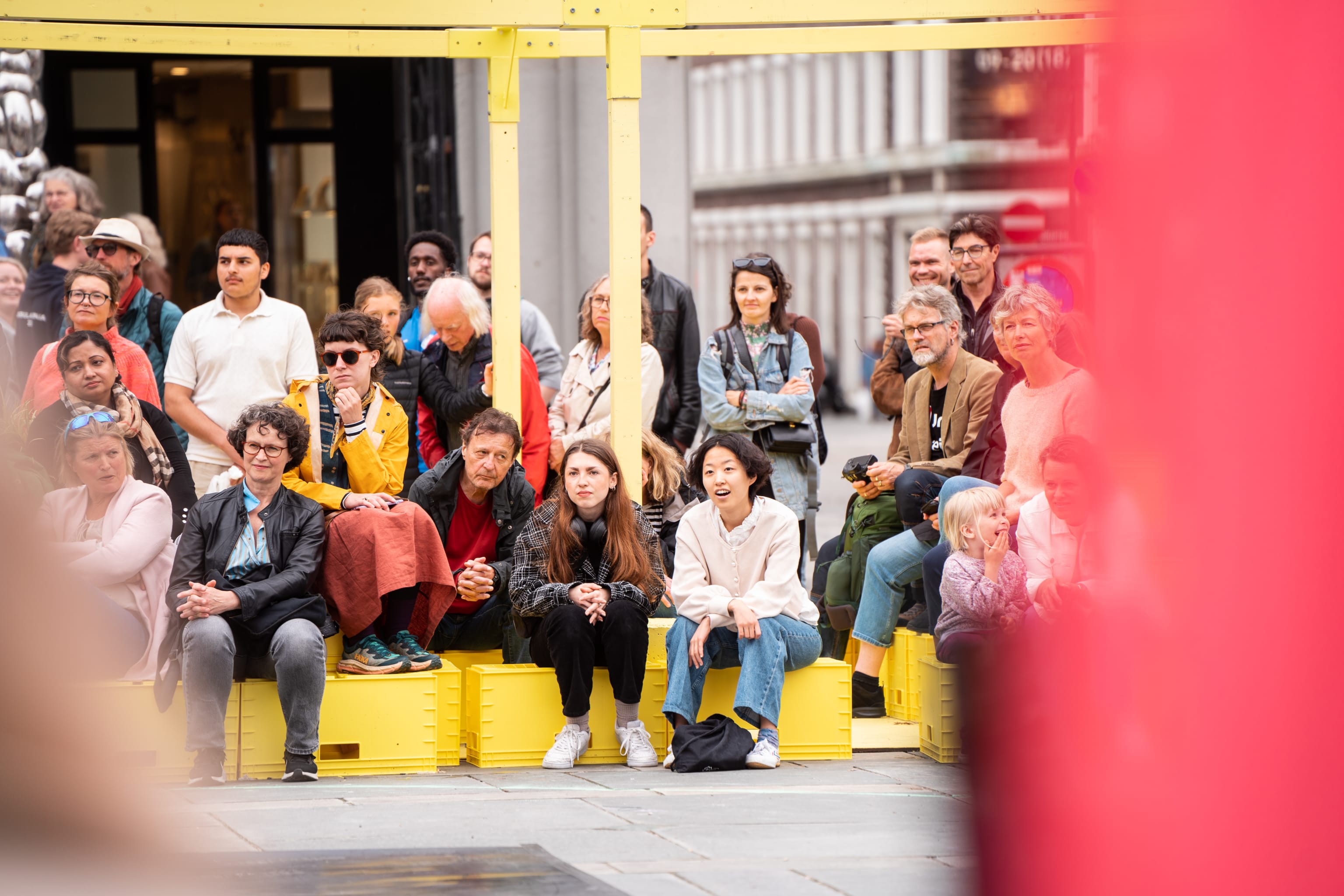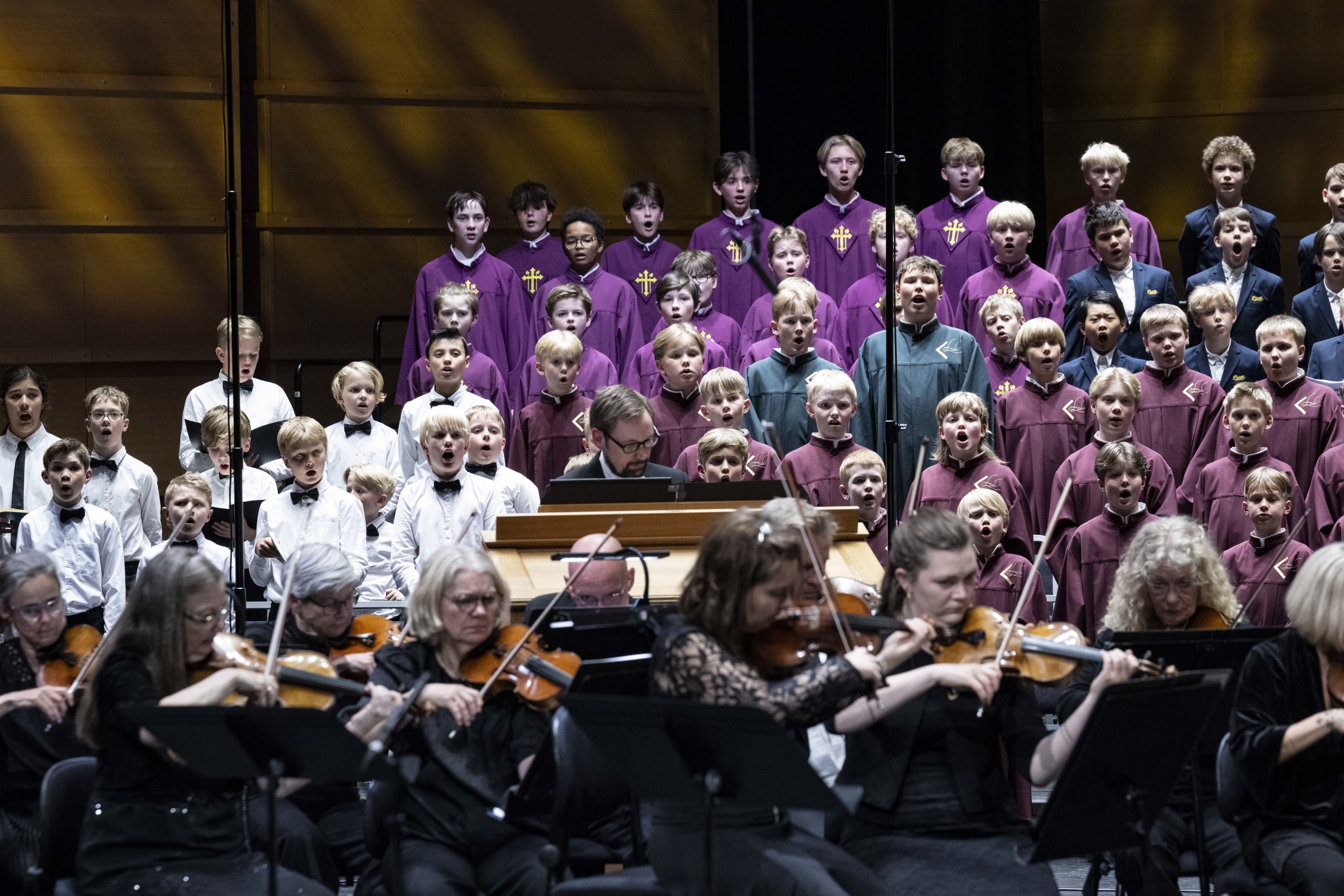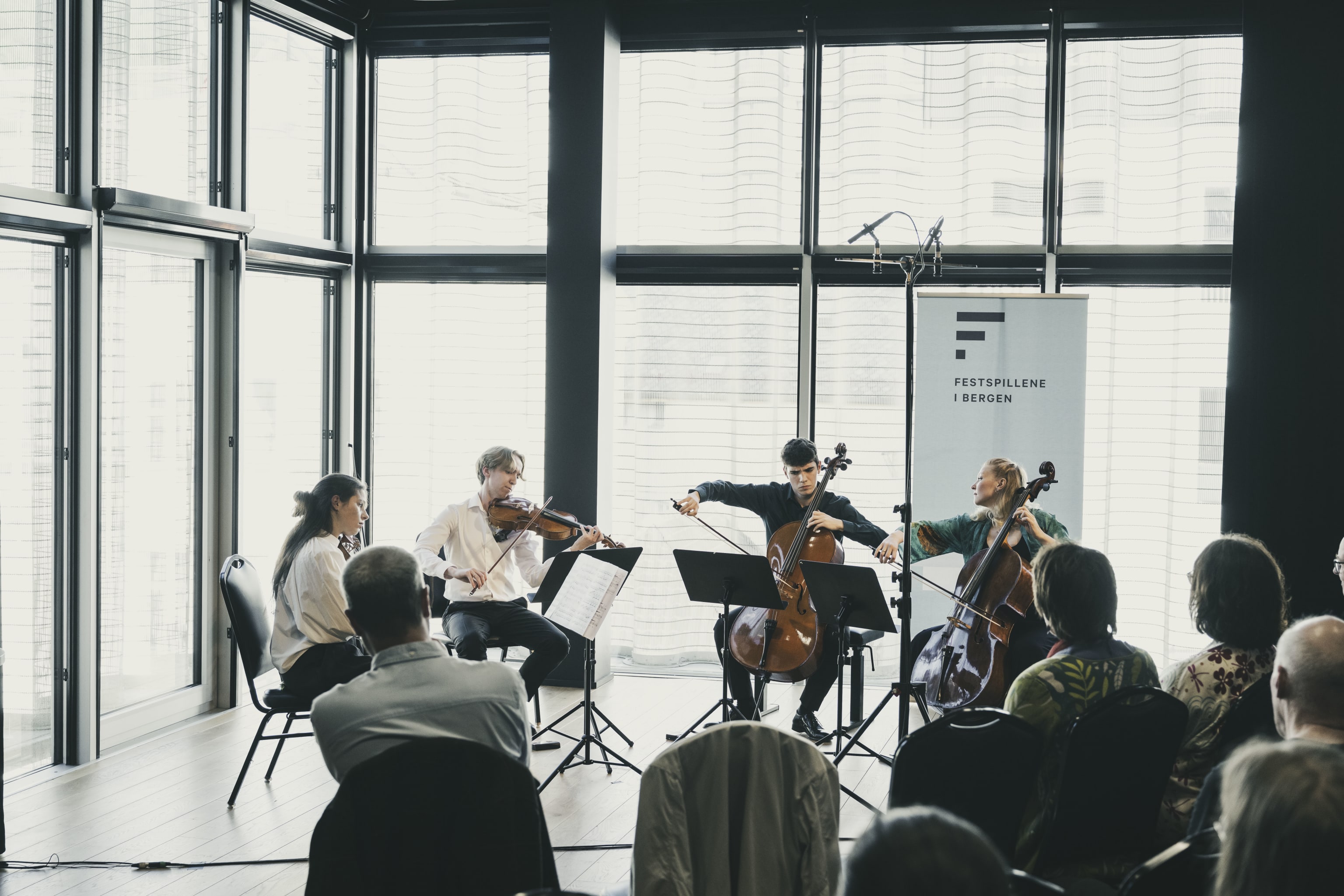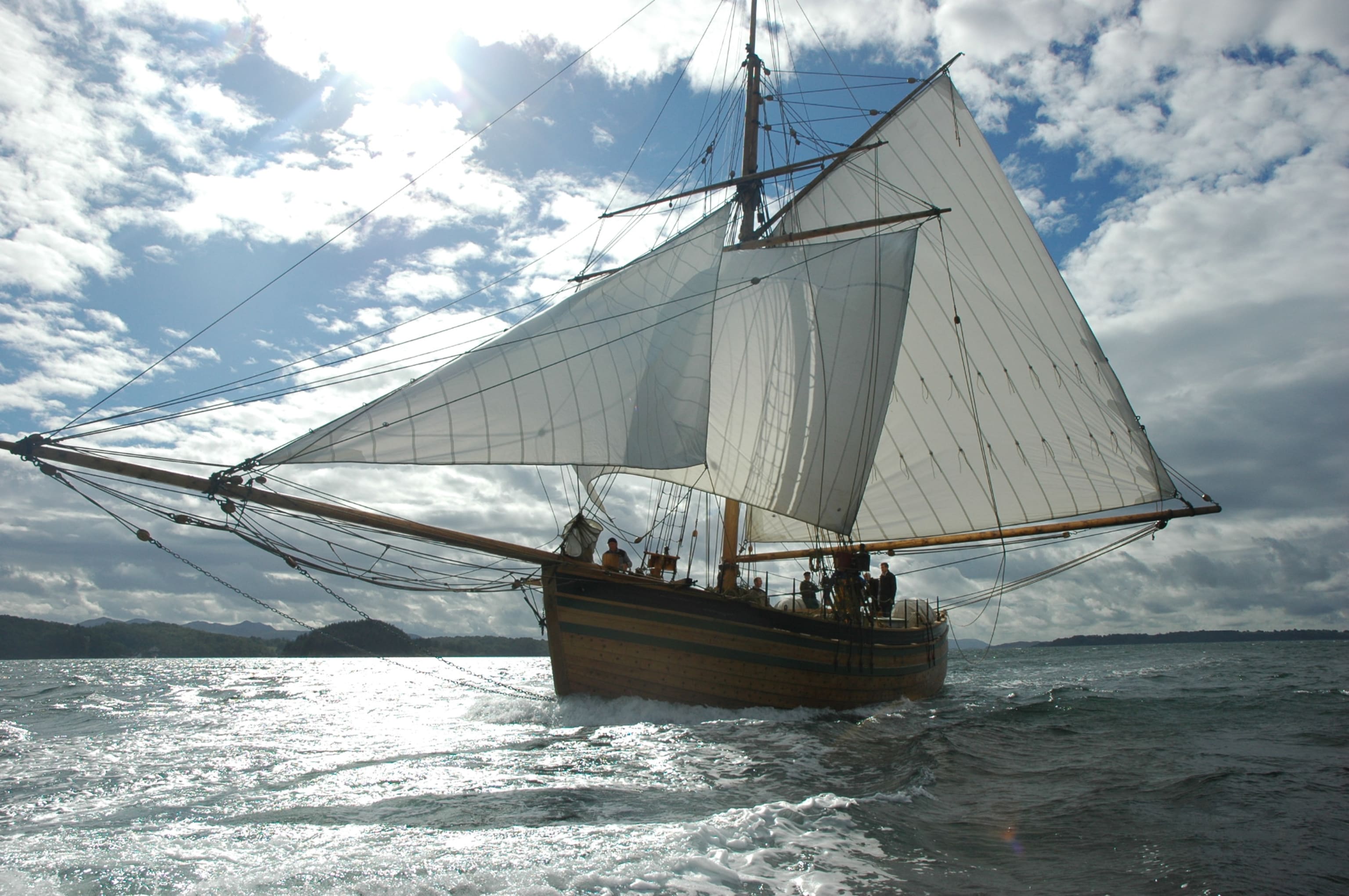Nordic Know-How
- Home
- Festival
- 2020-and-before
- Articles
- Nordic Know-How
January 24, 2012
Bergen International Festival (23 May–6 June 2012) celebrates Diamond Jubilee season with winning mix of new productions, imaginative interpretations and unique events.
Programme includes world premiere of completed version of Brecht’s Fatzer, Bryn Terfel in Berlioz’s The Damnation of Faust, Stefan Herheim’s fresh staging of Handel’s Xerxes, and captivating collaborations involving ensembles from the Venezuela’s El Sistema, the Mahler Chamber Orchestra, the Royal Danish Theatre and the Bergen Philharmonic Orchestra
‘Norwegian Nirvana: The Bergen International Festival offers performances in a variety of stunning venues, from an island villa in the fjords to Grieg’s beautiful lakeside home.’ Gramophone
Regular visitors to the Bergen International Festival have come to expect the unexpected. The annual event marks its 60th season this year with a programme rich in original productions, compelling artworks and outstanding artists. Audiences have the chance to experience everything from a new production by the Komische Oper Berlin of Handel’s Xerxes and an all-star performance of Berlioz’s The Damnation of Faust to the world premiere of Fatzer, Tore Vagn Lid’s imaginative (re)construction of Bertolt Brecht’s unfinished stage work. The Festival contains over 150 events within its two-week span, presented at 15 venues in and around Bergen’s historic city centre. In short, the programme amounts to nothing less than an essential survey of the most exciting and innovative in Nordic performing arts.
Festival Director Per Boye Hansen and his team have worked tirelessly to place remarkable artworks and ensembles from Nordic countries at the heart of this year’s programme :
“For our 2012 anniversary season, we sought the strongest possible connections between Norwegian artists and their international colleagues,” he comments. “We asked the best of Norway’s talents to collaborate with people with whom they have already worked abroad. This will allow us to celebrate wonderful encounters, such as those between Leif Ove Andsnes and the Mahler Chamber Orchestra, Stefan Herheim and the Komische Oper, and dramatist Jon Fosse’s The Loneliness Trio, which will be performed in Spanish by six magnificent actors from Cuba. “We want to showcase Norwegian theatre and music of the moment. We also aim to reveal the most interesting people and what they do abroad, and bring this to Bergen.”
Hansen points to his Festival’s internationally acclaimed collaboration with Transiteatret-Bergen and its director, Tore Vagn Lid. Their evolving partnership, which began in 2007 with a strikingly successful staging of Brecht’s Die Maßnahme, continues with the premiere production of Fatzer (25-30 May). Vagn Lid has unravelled the multiple fragments and textual complexities of Brecht’s Downfall of the Egotist Johann Fatzer, widely considered to be the German dramatist’s equivalent to Goethe’s Faust. The original work, crafted between 1926 and 1930, confronts the eternal conflict between individual gratification and collective solidarity. Vagn Lid’s treatment echoes the brutal turmoil of life in Weimar Germany and poses existential questions for audiences today.
Other highlights of the Bergen International Festival’s theatre and dance programme include a modern interpretation of Jeppe of the Hill (3 & 4 June) and a nightmarish contemporary vision of Ibsen’s Peer Gynt, presented by director Kjersti Horn as ‘a disturbing odyssey into the heart of darkness’ in her controversial new production. Jeppe, originally penned by the Bergen-born philosopher and playwright Ludvig Holberg in 1722, follows the fortunes of a browbeaten peasant transformed by a spectacularly heavy drinking session into a working-class hero. Norwegian director Ole Anders Tandberg and a cast of Sweden’s foremost actors have converted Holberg’s black comedy into what one reviewer describes as ‘a fantastic theatrical happening … irresistible’.
Norwegian and Danish duo Michael Elmgreen and Ingar Dragset promise to deconstruct conventional wisdom about contemporary art in their Beckett-inspired Happy Days in the Art World (24-26 May), produced in association with Performa, New York and the Royal Danish Theatre Copenhagen. The Festival is set to present Jon Fosse’s The Loneliness Trilogy (1-3 June) in three private apartments on the slopes overlooking Bergen. The work was first explored in this form by three Cuban directors during last year’s Havana Theatre Festival.
“The Bergen International Festival is not simply about Norwegians proclaiming that we are a creative nation,” says Per Boye Hansen. “It exists to provide people with the resources and opportunities to be creative. I believe it is important for a festival to do more than buy-in projects from overseas. We have initiated work and become a strong force in developing international projects. Many of the programmes at this year’s Festival originated here in Bergen. We went to Cuba, for example, in search of directors and invited three of them to stage Jon Fosse’s trilogy. And Tore Vagn Lid, who is Bergen based, found Brecht’s Fatzer fragments and has constructed them into a whole piece for the Festival. Presenting new art and discovering fresh insights is very important for us in Bergen.”
Bergen’s Grieghallen plays host to a succession of standout concerts during the Festival, opening on 23 and 24 May when Berlin’s Komische Oper comes to town to present Handel’s Xerxes staged by the young Norwegian director, Stefan Herheim. Leif Ove Andsnes and the Mahler Chamber Orchestra occupy the venue on 25 May for performances of Beethoven’s first and third piano concertos and Stravinsky’s Apollon musagète. The Venezuelan Brass Ensemble, a vital component of the South American nation’s El Sistema, joins forces with the Norwegian Brass Band on 27 May for an afternoon of rip-roaring arrangements and original compositions. El Sistema is also central to Orchestra Nove, an exciting new symphony orchestra comprising 160 young performers from Norway and Venezuela (2 & 3 June). The NDR Radio Philharmonic, meanwhile, tackles two great Tchaikovsky concertos in company with cellist Truls Mørk (28 May) and violinist Renaud Capuçon (29 May).
On 31 May and 1 June, the Bergen Philharmonic Orchestra and principal guest conductor Juanjo Mena turn to the work of ‘local’ composer Edvard Grieg to celebrate the Festival’s Diamond Jubilee. The orchestra returns to work on 5 and 6 June to conclude this year’s programme with The Damnation of Faust. Sir Andrew Davis will conduct Berlioz’s ‘dramatic legend’, with Paul Groves as Faust and Christine Rice as Marguerite. Bryn Terfel makes his third appearance in the Bergen International Festival as Méphistophélès.
“I’m very happy that we have such a tremendous cast for my final concert as Festival Director,” observes Per Boye Hansen, who takes charge as Artistic Director of the Norwegian National Opera this August. “When I arrived in Bergen in 2005, my vision was to make the Festival more international by initiating and producing our own work,” he says. “We wanted to be seen as a melting pot for creativity in the Nordic countries, such that people coming from overseas could experience a sense of what is going on in this part of the world. This has been about locating the Festival in its wider cultural context. I hope we have been successful in achieving this goal and believe that our Diamond Jubilee programme shows in so many ways the Bergen International Festival’s distinctive character.”
The first Bergen International Festival took place in 1953. It was modelled on the Salzburg Festival and has been credited to the initiative of the opera singer Fanny Elsta. In addition to music, ballet and the theatre, the inaugural festival audience experienced a procession celebrating folk tradition and the crowning of Miss Festival in one of the city’s parks. The annual event has played host to international artists while preserving its strong local identity, connecting strongly with roots established for music-making in the city by Edvard Grieg in the 1890s. Its programmes have been distinguished both by the spirit of place and the outward facing nature of Bergen, among Europe’s largest sea ports.
As the oldest institution of its kind in Norway, the history of the Bergen International Festival holds both general and academic interest. The complete festival archives, now securely held and curated by Bergen City Archives, provide a rich insight into post-war Norwegian cultural history. A special exhibition of archive treasures, to celebrate the Festival’s Diamond Jubilee, will be presented in a web museum and at Bergen’s Festplassen.






